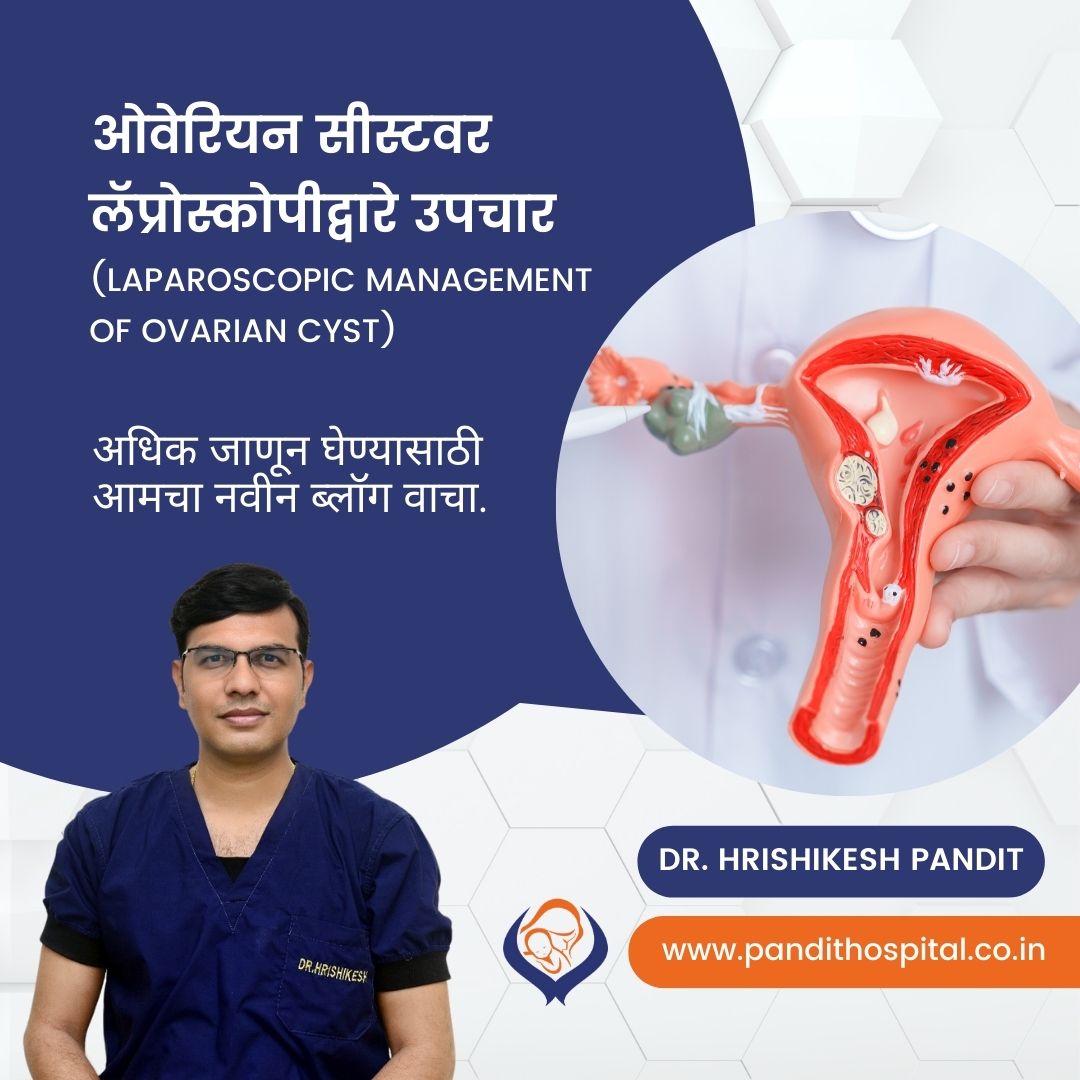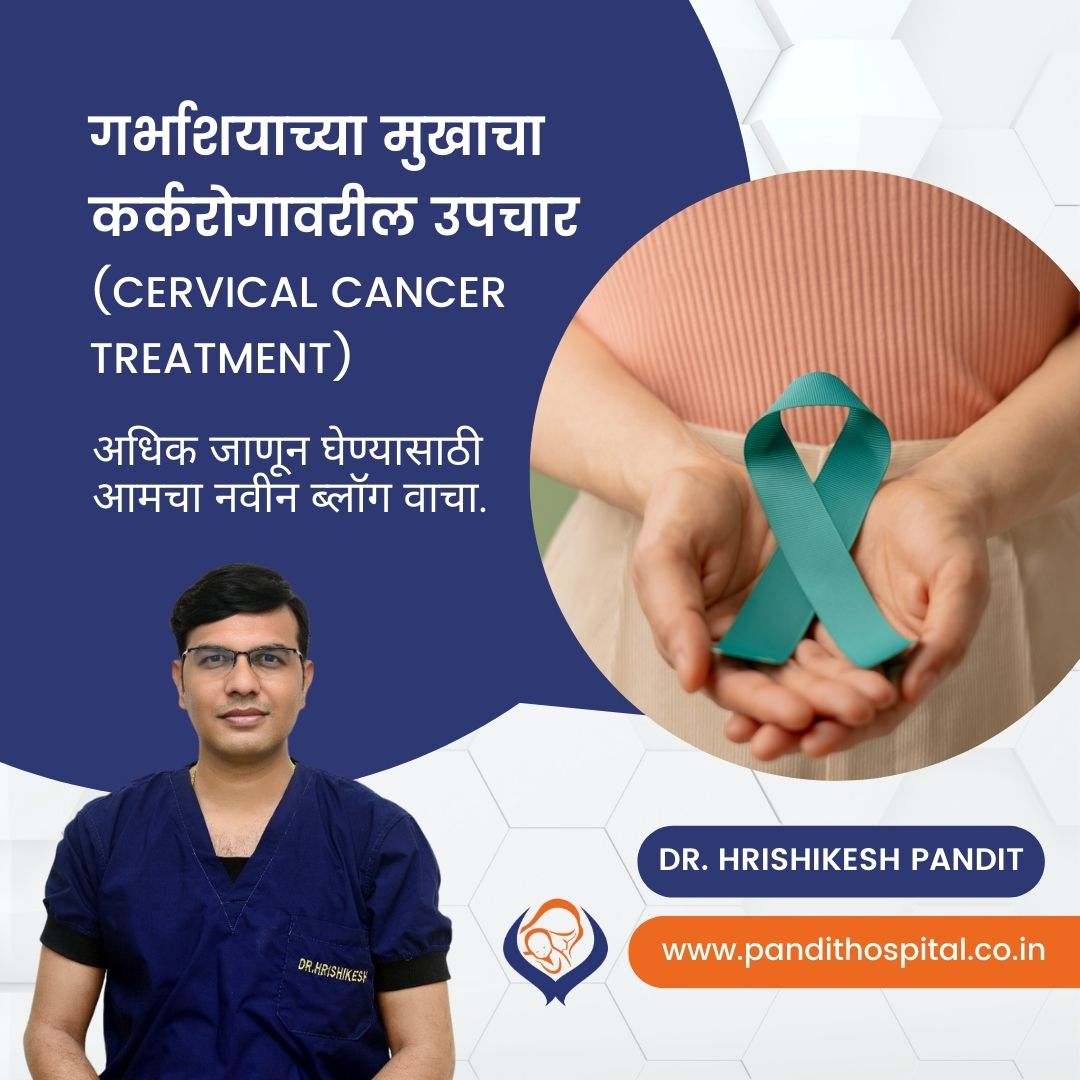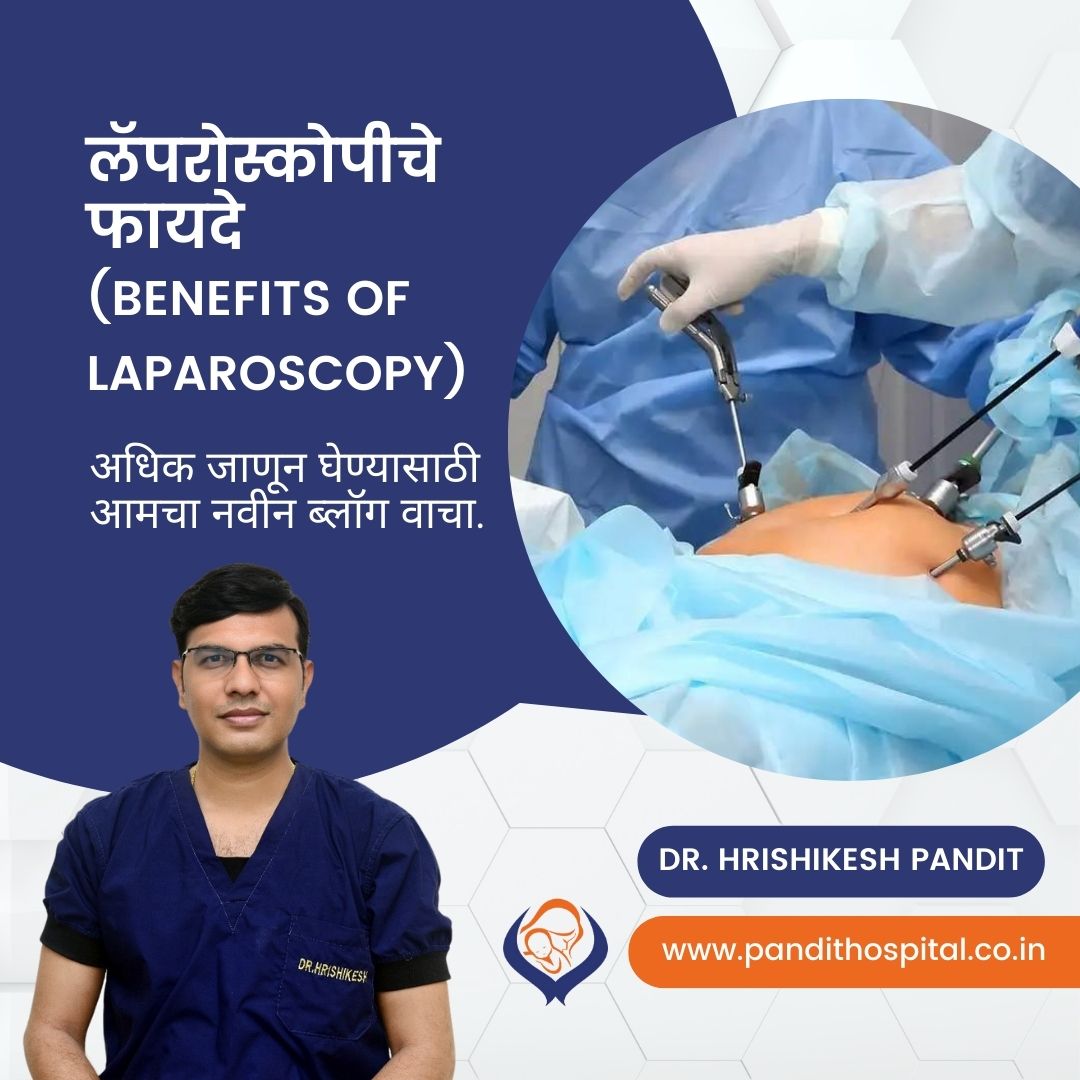At Pandit Hospital in Ahmednagar, under the visionary leadership of Dr. Hrishikesh Pandit, we recently witnessed a remarkable case of Grade 4 endometriosis, which demanded an innovative and precise surgical approach. Our 23-year-old patient, diagnosed with Didelphis Uterus, had previously undergone exploratory laparotomy with the removal of the left-sided horn and an unnecessary oophorectomy for a chocolate cyst. This had left her with persistent dysmenorrhea, requiring our expert intervention.
The Challenge of Grade 4 Endometriosis
Grade 4 endometriosis is a severe stage of the condition, characterized by the presence of deep infiltrating endometrial tissue, extensive adhesions, and often involving multiple organs within the pelvis. Our patient presented with debilitating dysmenorrhea, and upon examination, we discovered her uterus was adenomyotic, measuring around 12 weeks in size. Addressing this complex case required an intricate surgical approach.
The Triple Flap Technique with Peritonectomy for Grade 4 Endometriosis:
To tackle the patient’s Grade 4 endometriosis and adenomyotic uterus, we employed a sophisticated surgical technique known as the “triple flap technique” coupled with peritonectomy. This innovative approach has proven to be highly effective in addressing the challenges posed by extensive endometriosis and adenomyosis.
- Significance of the Triple Flap Technique
The triple flap technique is an advanced surgical method that offers several advantages, especially in cases like ours. It involves the creation of three separate flaps of peritoneal tissue, which are used to cover the surgical site. This technique minimizes the risk of dead spaces being left behind after closure, reducing the chances of postoperative complications.
- Reducing the Risk of Dehiscence
One of the key benefits of the triple flap technique is its ability to significantly reduce the risk of wound dehiscence. With a simple double-layer closure, the risk of dehiscence can be as high as 26%, but with the triple flap technique, this risk drops to just 6%. This remarkable reduction in complications post-surgery is crucial for the patient’s overall well-being and recovery.
Success Story of Dr. Hrishikesh Pandit:
Our surgical team at Pandit Hospital, led by Dr. Hrishikesh Pandit, executed the adenomyomectomy with peritonectomy using the triple flap technique with precision. This approach not only addressed the adenomyotic uterus but also effectively managed the extensive endometriosis.
Post-surgery, the patient experienced a significant improvement in her quality of life. Her dysmenorrhea was alleviated, and she no longer had to endure the excruciating pain that had plagued her for so long. The success of this complex surgery highlights the expertise and dedication of our medical team at Pandit Hospital.
Conclusion
The case of our 23-year-old patient with Grade 4 endometriosis and Didelphis Uterus is a testament to the remarkable results that can be achieved through innovative surgical techniques and the expertise of our medical professionals at Pandit Hospital. The triple flap technique, with its reduced risk of complications, proved to be instrumental in ensuring the patient’s well-being and recovery. Our commitment to providing the best possible care remains unwavering, and we are proud to have made a positive impact on the life of this young woman.
At Pandit Hospital, Ahmednagar; Dr. Hrishikesh Pandit has the experience of more than 5000 laparoscopic surgeries and has best 3D laparoscopy technology at his centre to provide best results.
Dr. Hrishikesh Pandit is the pioneer of 3D laparoscopy technique in Ahmednagar. His experience and skill makes him one of the best laparoscopic surgeon in India.
At Pandit Hospital, you are in safe hands!
To consult Dr. Hrishikesh Pandit, Click Below,
Pandit Hospital – Best Maternity care center in Ahmednagar
LET’S SEE OUR INTRO VIDEO
At Pandit Hospital, we provide all the maternity services from antenatal to postnatal period under one roof
Let's Connect!!
0241-2441717 / 0241-2442344
About author:
Dr. Hrishikesh Pandit:
Dr. Hrishikesh Pandit is one of the best obstetrician and gynecologist in India. He is also a well-renowned Laparoscopic surgeon. He obtained his MS (Ob Gyn) degree from the prestigious Pravara Institute of Medical Sciences. He has also done fellowship and diploma courses in laparoscopic surgeries and cancer treatment from Tata Hospital and Keil University, Germany. His surgical cases, papers and videos has been chosen in many international forums of gynecology.
At Pandit Hospital, we are always working hard to provide its patients with the highest level of medical innovation and patient care. With the aim of delivering complete maternity & gynecological care under one roof with the help of all contemporary amenities and cutting-edge medical equipment. Dr. Hrishikesh Pandit has a vision to bring the best of facilities regarding laparoscopy surgeries in the city of Ahmednagar. He is the pioneer of 3D Laparoscopy technology is Ahmednagar.
Latest Articles
Dr. Hrishikesh Pandit is one of the best laparoscopy surgeons in India. His determination to bring 3D Laparoscopy technology to Ahmednagar has eventually helped so many patients. Read the latest articles by Dr. Hrishikesh Pandit on Gynecology, gastric issues, and health tips for mothers during pregnancy.
Discover comprehensive ovarian cyst treatments at Pandit Hospital in Ahmednagar, Maharashtra, led by 3D Laparoscopic Surgeon Dr. Hrishikesh Pandit. Learn about types, symptoms, and both surgical and non-surgical treatments. Best ovarian cyst removal hospital in India.
गर्भाशयाच्या मुखाचा कर्करोग हा महिलांमध्ये होणारा दुसरा सर्वात गंभीर कॅन्सर आहे. वयाच्या 35 व्या वर्षानंतर या आजाराचा धोका फार वाढतो. गर्भाशयाच्या कर्करोगावर लॅपरोस्कोपी (दुर्बिणीने) शस्त्रक्रियेद्वारे उपचार केले जाऊ शकतात.
लॅपरोस्कोपिक शस्त्रक्रियेचे अनेक फायदे आहेत ✔ कमी वेदना ✔ कमी रक्तस्त्राव ✔ रुग्णालयात किमान मुक्काम ✔ जलद रिकव्हरी ✔ कमी कॉम्प्लिकेशन्स ✔ कमी टाके ✔अंतर्गत अवयवांना कमी इजा. Benefits of laparoscopy &Marathi)
FAQ
You should consult a doctor during the first 6 to 8 weeks of your pregnancy, or when your period is 2 to 4 weeks late.
If your contractions are 5 minutes apart, lasting for 1 minute, for 1 hour or longer, it’s time to head to the hospital.
Doctors recommend an infertility evaluation if you have not gotten pregnant after 1 year of having regular sexual intercourse without using birth control. If you are older than 35, an evaluation is recommended after 6 months of trying.
Yes, You can. But most babies need 39 weeks to develop fully. Induced or planned delivery before that time—without a valid medical reason—is not in the best interest of the baby or the mother. After 39 weeks you can plan delivery.
Women who are 21 to 29 should have a Pap test alone every 3 years. HPV testing alone can be considered for women who are 25 to 29, but Pap tests are preferred. Women who are 30 to 65 have three options for testing. They can have a Pap test and an HPV test (co-testing) every 5 years. They can have a Pap test alone every 3 years. Or they can have HPV testing alone every 5 years.
Laparoscopic hysterectomy is a safe and suitable procedure for chosen patients. It affords patients advantages like less peri-operative morbidity, better life quality, shorter hospitalization time, and faster return to activity.
Schedule a doctor’s visit if you have: Greenish, yellowish, thick or cheesy vaginal discharge; Strong vaginal odor; Redness, itching, burning or irritation of your vagina or the area of skin that surrounds the vagina and urethra (vulva); Bleeding or spotting unrelated to your period.
Painless delivery can be achieved using a form of regional anesthesia that provides pain relief during natural labor. Epidural anesthesia is administered through an injection on the lower back of the mother. The drug takes about 10-15 minutes to take effect.
Even in severe cases of endometriosis, most can be treated with laparoscopic surgery. In laparoscopic surgery, your surgeon inserts a slender viewing instrument (laparoscope) through a small incision near your navel and inserts instruments to remove endometrial tissue through another small incision.
The HPV vaccine is recommended for routine vaccination at the age of 11 or 12 years. (Vaccination can be started at age 9.) It is also recommended that vaccination for everyone through age 26 years if not adequately vaccinated when younger. HPV vaccination is given as a series of either two or three doses, depending on age at initial vaccination.




